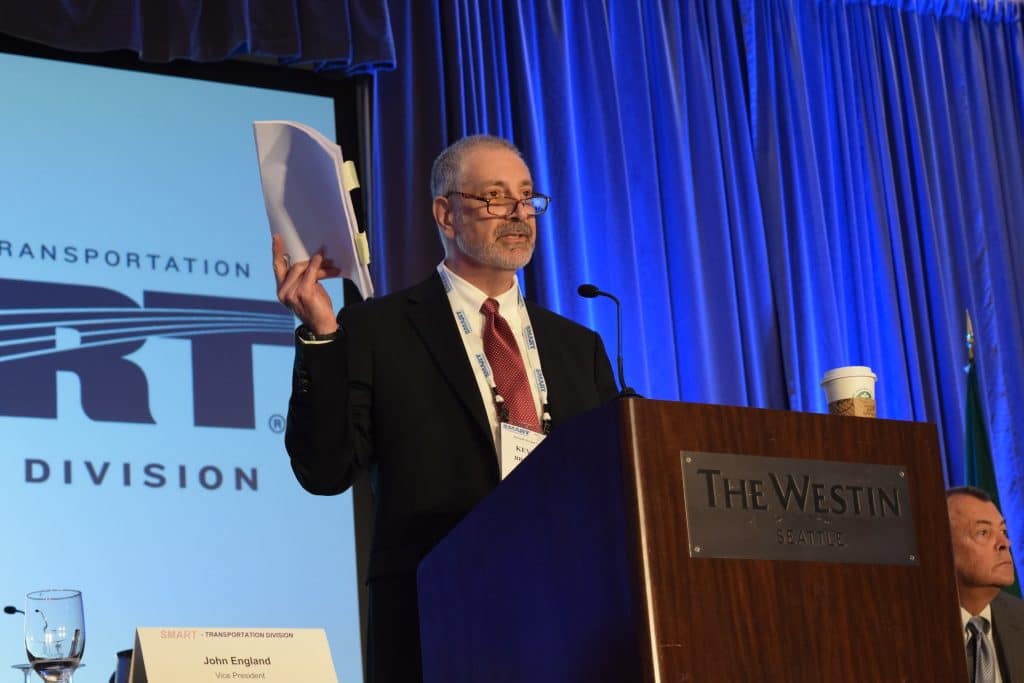SMART members know that union dues are an investment in themselves — one that pays off consistently in the form of strong contracts, pro-union laws and increased work.
The advocacy of union officers demonstrated that fact in summer 2024, when Local 105 (Southern California) won back thousands of work hours that rightfully belonged to SMART members.
In California’s Inland Empire, the Riverside Unified School District recently signed a project labor agreement/community workforce agreement (CWA) for the first time; a major win for union building trades workers that guaranteed them work on RUSD projects. However, on the mechanical side, a non-signatory contractor won several bids on RUSD work, including a large new build: Casa Blanca Elementary School.
Knowing the rules of the CWA and the strong labor provisions therein, Local 105 Business Manager Steve Hinson and officers decided to investigate. Sure enough, the contractor, Simco Mechanical, “sent unregistered core workers to the jobsite,” explained Local 105 Organizer Albert Orosco. “I caught them through certified payroll report records.”
Under Hinson’s direction, Orosco swiftly filed a grievance against Simco, noting that the violation of the CWA lowered area working conditions, kept local workers off the jobsite and violated the strong labor standards collectively bargained by SoCal unions.
Armed with the CWA language, Hinson and Local 105 negotiated a settlement with the contractor — one that will benefit members for years to come. For the remainder of the $600 million RUSD CWA, the settlement reads, Simco Mechanical can only “staff one of their field employees to fulfill the duties of a field foreman for the worksite, with all other duties onsite being performed by Local 105 members.”
In other words, the activity of Local 105 officers — made possible by union dues — secured an enormous amount of work for union sheet metal workers.
“This is a major win for our members: creating work hours in the Inland Empire, where many of them live and will be put to work as the agreement intended,” concluded Local 105 Business Representative Tim Hinson.

 WASHINGTON — The Supreme Court dealt a blow to public sector unions Monday, ruling that thousands of home health care workers in Illinois cannot be required to pay fees that help cover the union’s costs of collective bargaining.
WASHINGTON — The Supreme Court dealt a blow to public sector unions Monday, ruling that thousands of home health care workers in Illinois cannot be required to pay fees that help cover the union’s costs of collective bargaining.